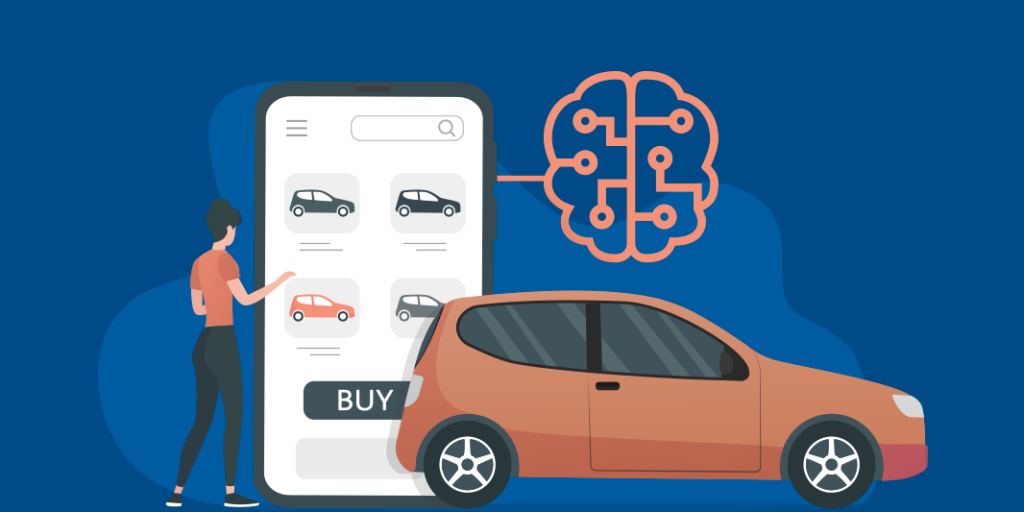
Artificial intelligence (AI) has made massive strides to become a must-have element of e-commerce business processes. Almost three in four businesses already use AI in some capacity, and the e-commerce industry is rife with opportunities for maximizing its effects. You can use AI for tasks like streamlining customer service demands, reducing errors, and making accurate predictions.
While many businesses are reaping the rewards of AI, e-commerce sellers have a particular advantage. Many tasks in this field are well-suited to AI, which excels in analyzing huge amounts of data, making predictions based on behavior, and understanding speech patterns. An e-commerce business might use AI for everything from providing a customer service chatbot and product recommendations to robust analytics and predictive inventory management. Almost every part of e-commerce sales can benefit from the capabilities of AI.
The different types of AI have wide-reaching impacts on e-commerce:
These technologies offer a wide range of benefits, such as improved efficiency, better customer experiences, and more informed decision-making. You’ll find businesses using AI in e-commerce for back-end, corporate, and customer-facing applications, where they gain competitive advantages throughout the processes.
The future of e-commerce and AI is bright. Here are a few ways businesses are using AI and machine learning in e-commerce:
Machine learning can implement dynamic content on your website that adjusts according to user behaviors. One example might be offering a list of product recommendations. As a user clicks on different items while browsing, AI can learn from their habits and offer suggestions with similar characteristics. Alongside customer interactions, a recommendation algorithm could use aggregate data collected from other users and information provided by the user, such as the shoe size entered in their user profile.

Product recommendations can improve the customer experience while boosting sales. Another way to use AI in e-commerce is through dynamic pricing, which adjusts prices based on market analyses. If supply and demand increase the value of an item, AI can adjust it automatically. It may even consider your competitor’s prices and decide whether lowering your price would be beneficial.
Chatbots leverage AI to communicate in a user-friendly manner. Customers can simply type their concerns as they would to a real person and receive responses. AI chatbots can even perform low-level actions for routine processes, freeing human staff members up for more important jobs.
While communicating with customers, an AI model can detect a user’s sentiment, identifying emotions like frustration or impatience. It can change its responses accordingly and flag or escalate the situation to a human agent if needed. AI systems also categorize information from interactions, which helps with tasks like routing the customer to the right department and keeping track of customer satisfaction.
The rise of virtual assistants has made making a purchase as easy as alerting your device and saying, “Reorder dog food.” A more specialized example comes from Estée Lauder. The company created a voice-enabled makeup assistant for visually impaired individuals, providing audio feedback on the user’s makeup application through a facial scan.
From straightforward reordering integrations to advanced experiences, e-commerce companies can find unique ways to leverage virtual assistants and voice technology to build their brands and help consumers.
For large brands, reading every product review or comment would be too resource-intensive. Natural language processing can help by reading through messages and categorizing them by sentiment, product mentions, or specific phrases like “too small.” You can develop a robust understanding of how customers feel about your items, informing further product development and marketing efforts.
An AI model could also reply to reviews, making customers feel heard and appreciated or escalating their concerns where appropriate.
Since AI excels at analyzing large amounts of data, it can create granular customer segments for highly targeted advertising. Research shows that 71% of customers expect personalized interactions, and 76% get frustrated when they don’t get it. Personalization also supports other advantages, like lower customer acquisition costs and higher marketing return on investment.
By analyzing and making decisions based on customer behaviors, AI can help you create an experience that’s as relevant and helpful as possible at any stage of the buying journey.
AI’s decision-making capabilities are also valuable behind the scenes, taking over repetitive or mundane administrative tasks. Businesses frequently use artificial intelligence in e-commerce to automate processes like returns and fraud prevention. For instance, AI could decide whether to approve a return based on factors like the customer’s location, the reason for the request, and the transaction amount. If approved, it can automatically generate shipping labels, make the changes in your system, and send instructions to the customer.
Many companies combine automated processing with tools like chatbots to offer an extremely fast and convenient customer experience with 24/7 availability and no wait times. Automation also benefits the business by reducing labor requirements for manual tasks, avoiding manual data entry errors, and streamlining order cycles.
Machine learning is a powerful tool for making predictions about expected business activities. You can use it to forecast your expected sales for the season and inform efforts like inventory management and marketing campaigns. If you usually see increases in sales at certain times of the year, such as seasons or holidays, a machine-learning prediction could calculate the expected increase in sales for the upcoming year, allowing you to order more products and bolster your staff.
Forecasting is especially valuable in fulfillment, often helping e-commerce retailers shorten delivery times, minimize waste, avoid stockouts, and optimize costs. AI and machine learning can also help on a smaller scale by making order-level decisions, such as which shipping provider offers the best balance of speed and cost.

However you choose to use it, AI has become a necessity for e-commerce businesses looking to get ahead. It’s crucial to gaining competitive advantages in applications spanning the entire order cycle. However, implementation can look drastically different for each organization. That’s why the team at Salient Process takes a comprehensive approach to AI and finds solutions that perform in your unique operating environment.
We’ll work with you to meet e-commerce goals with the help of industry-leading technology from IBM, like IBM Business Automation Workflow and IBM Robotic Process Automation. Contact us today to learn more about our services and see why respected global brands like Google, PayPal, and Adobe turn to Salient Process.